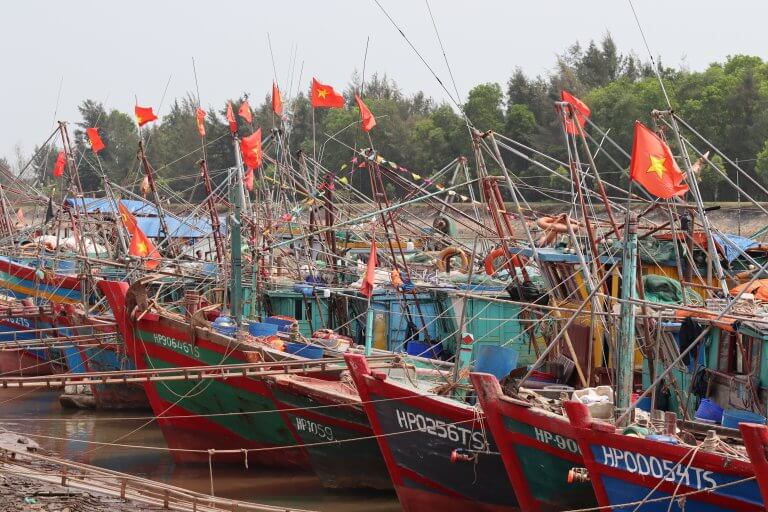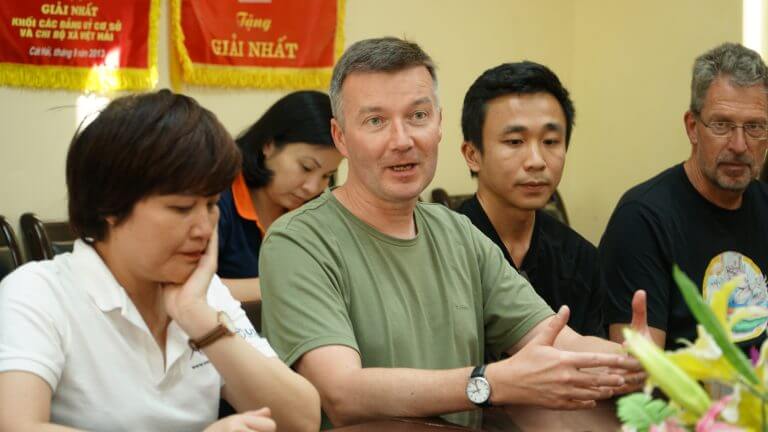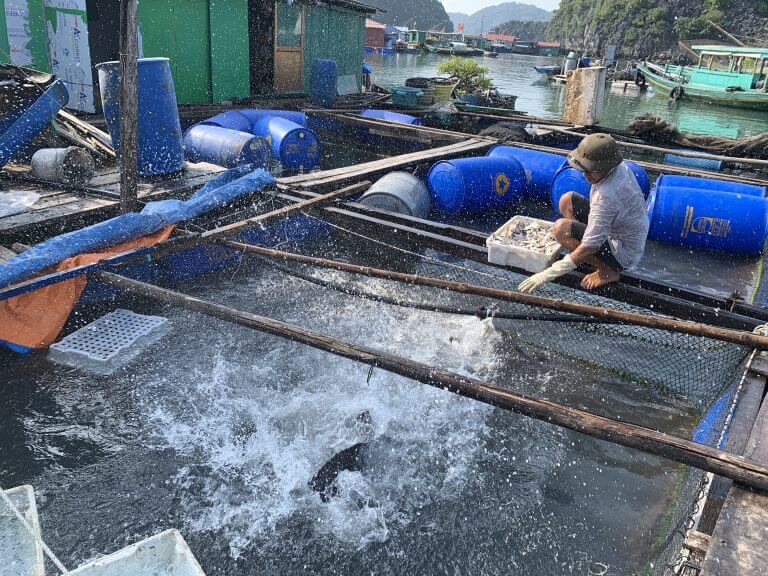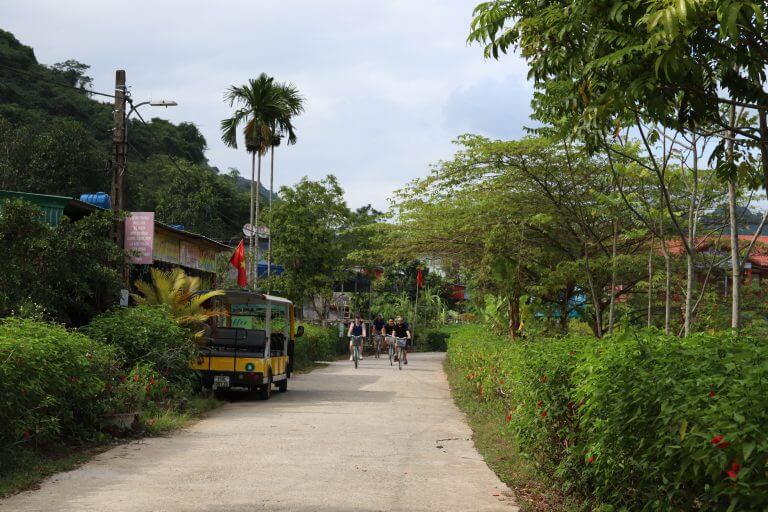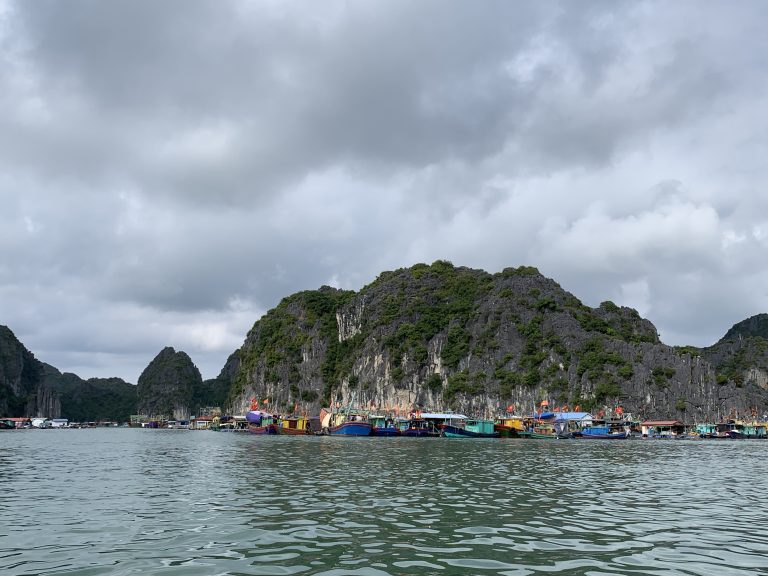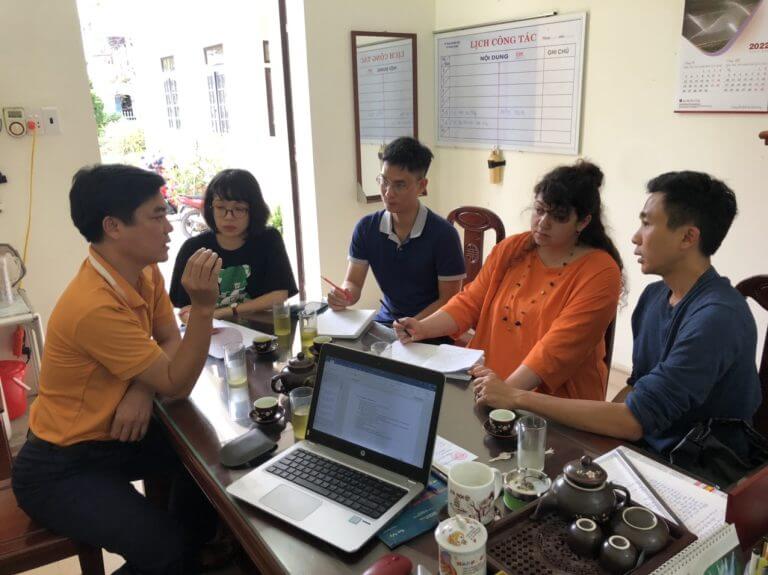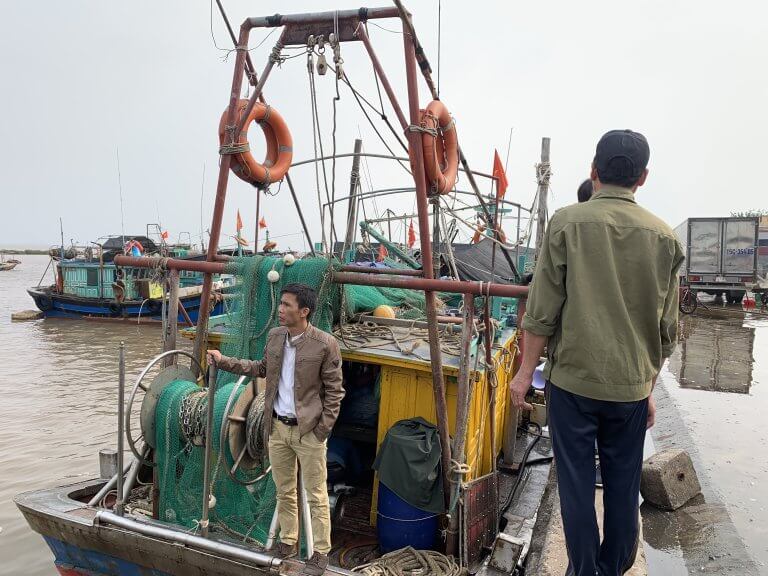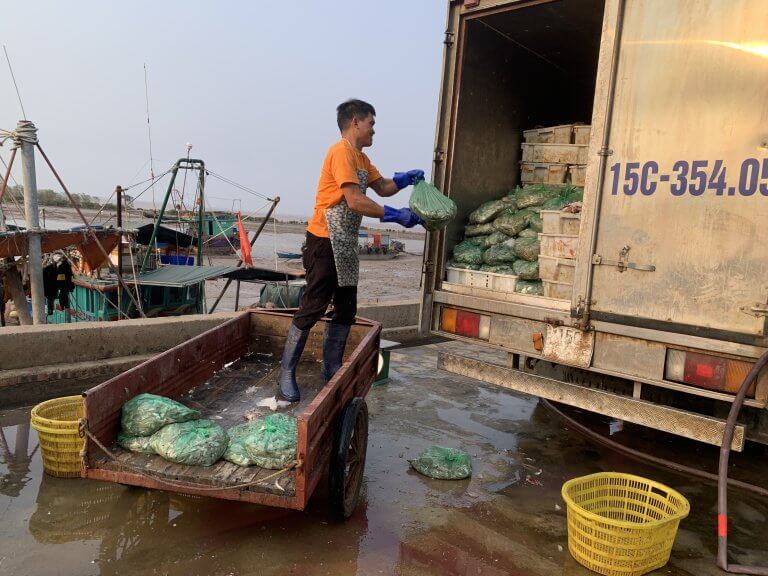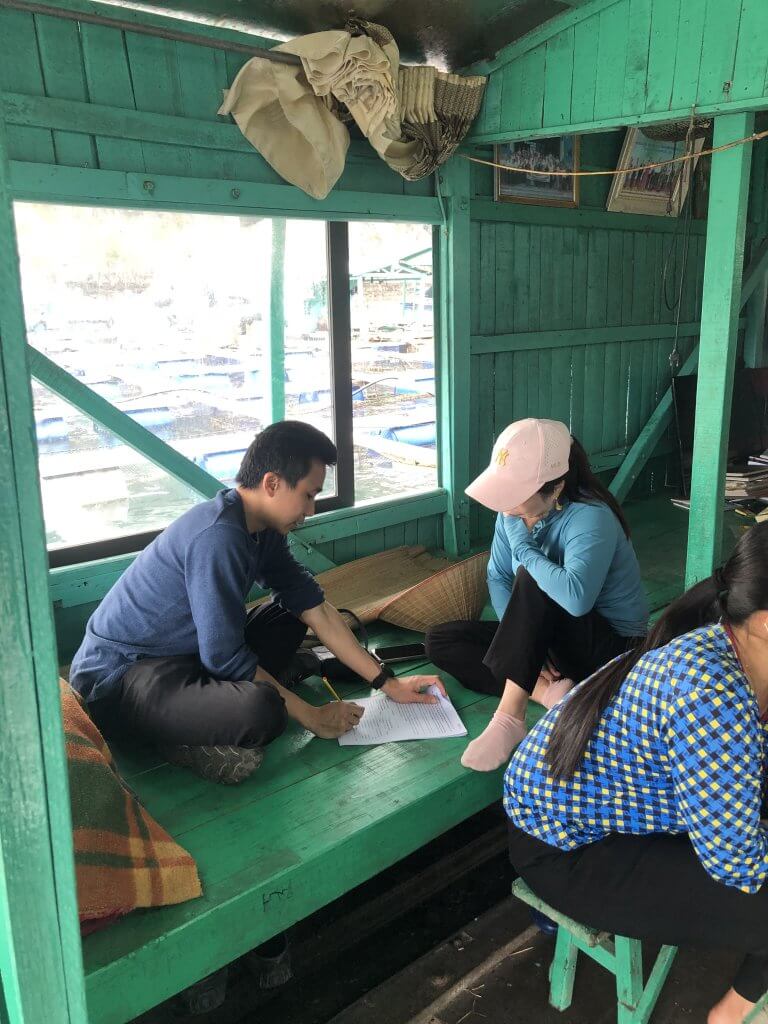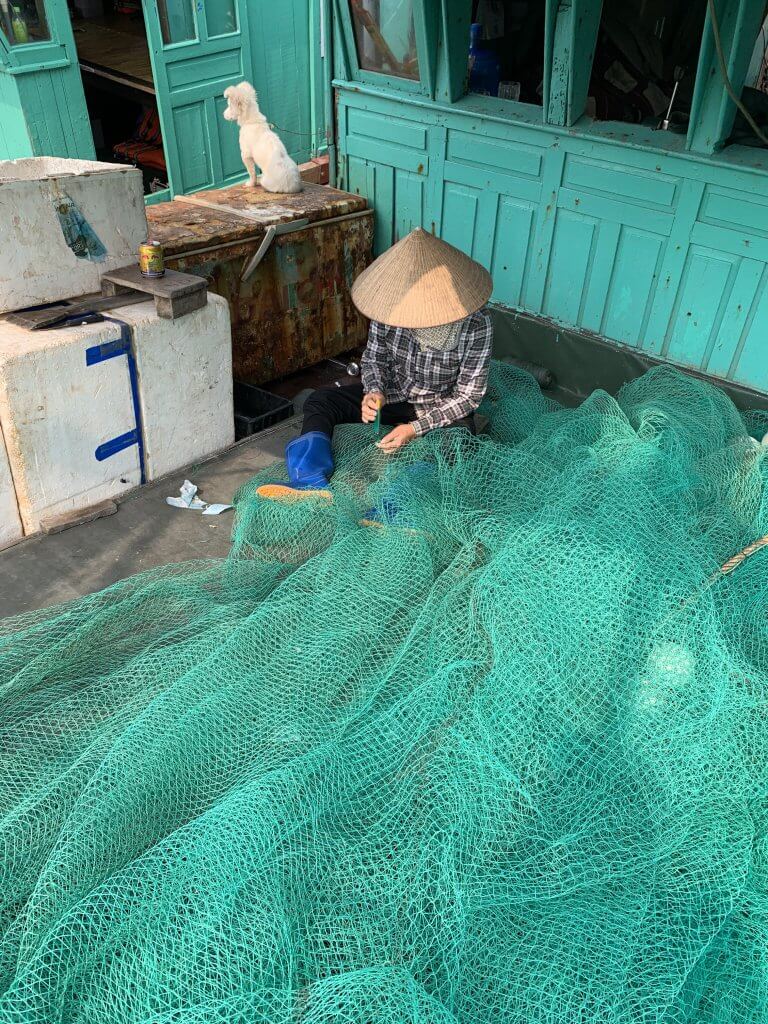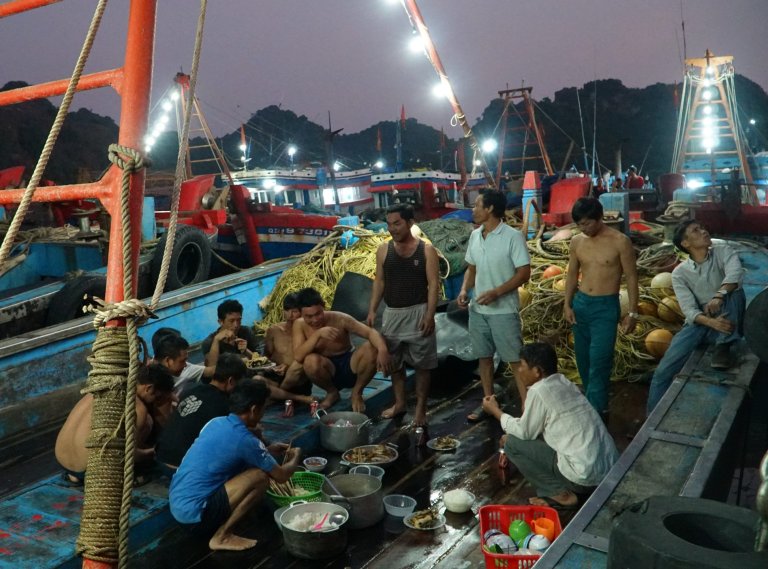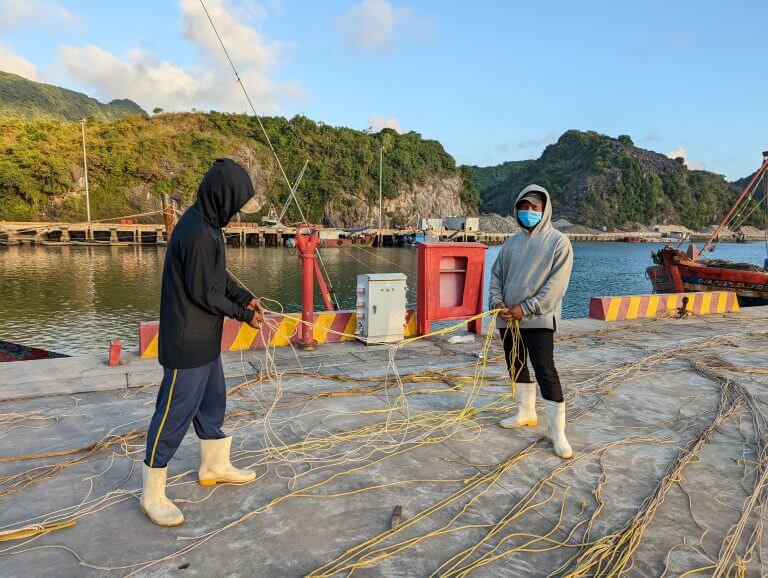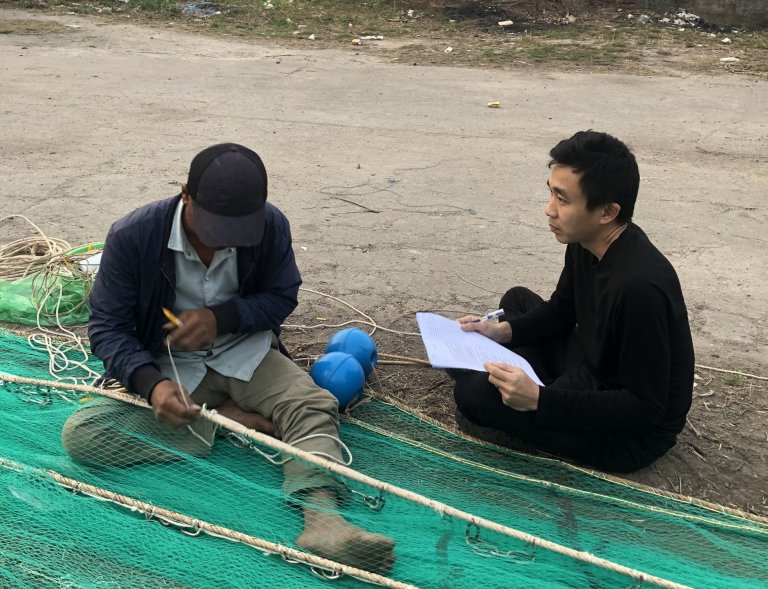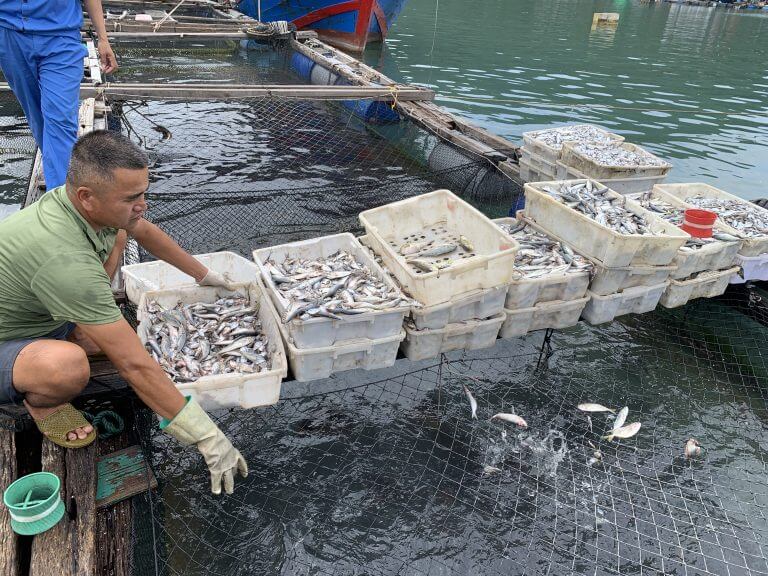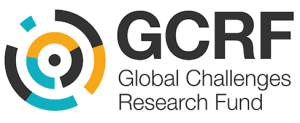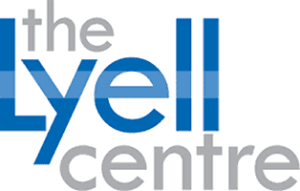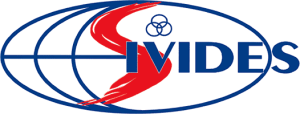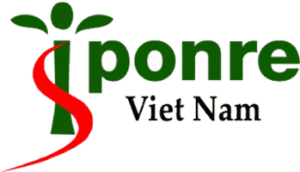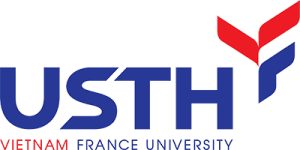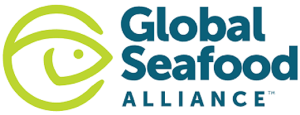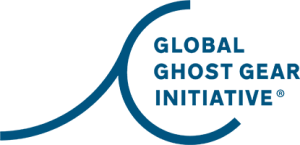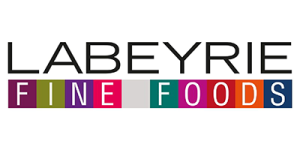Our research investigates the economic impacts of plastic waste on coastal communities and key industries in Viet Nam, such as fisheries, aquaculture, and tourism. These sectors support livelihoods, generate income and food, and create export revenue. All of them also depend on plastic in one form or another.
Fishing nets, pond liners, aquaculture feed bags, produce containers, and packaging, are some examples in which plastic is the main or a key component. However, plastic waste resulting from its various uses, loss, or discarding directly into the environment can also impact these businesses – for example, plastic that clogs fishing nets, blocks inflows to aquaculture ponds, spoiling the appearance of tourist beaches.
Moreover, larger plastics and microplastics could carry pollutants or disease organisms that may harm aquaculture or human health. Through a range of scientific methods and community engagement techniques we explore people’s perceptions and experiences with plastic to understand its day-to-day impacts on their businesses and livelihoods.
